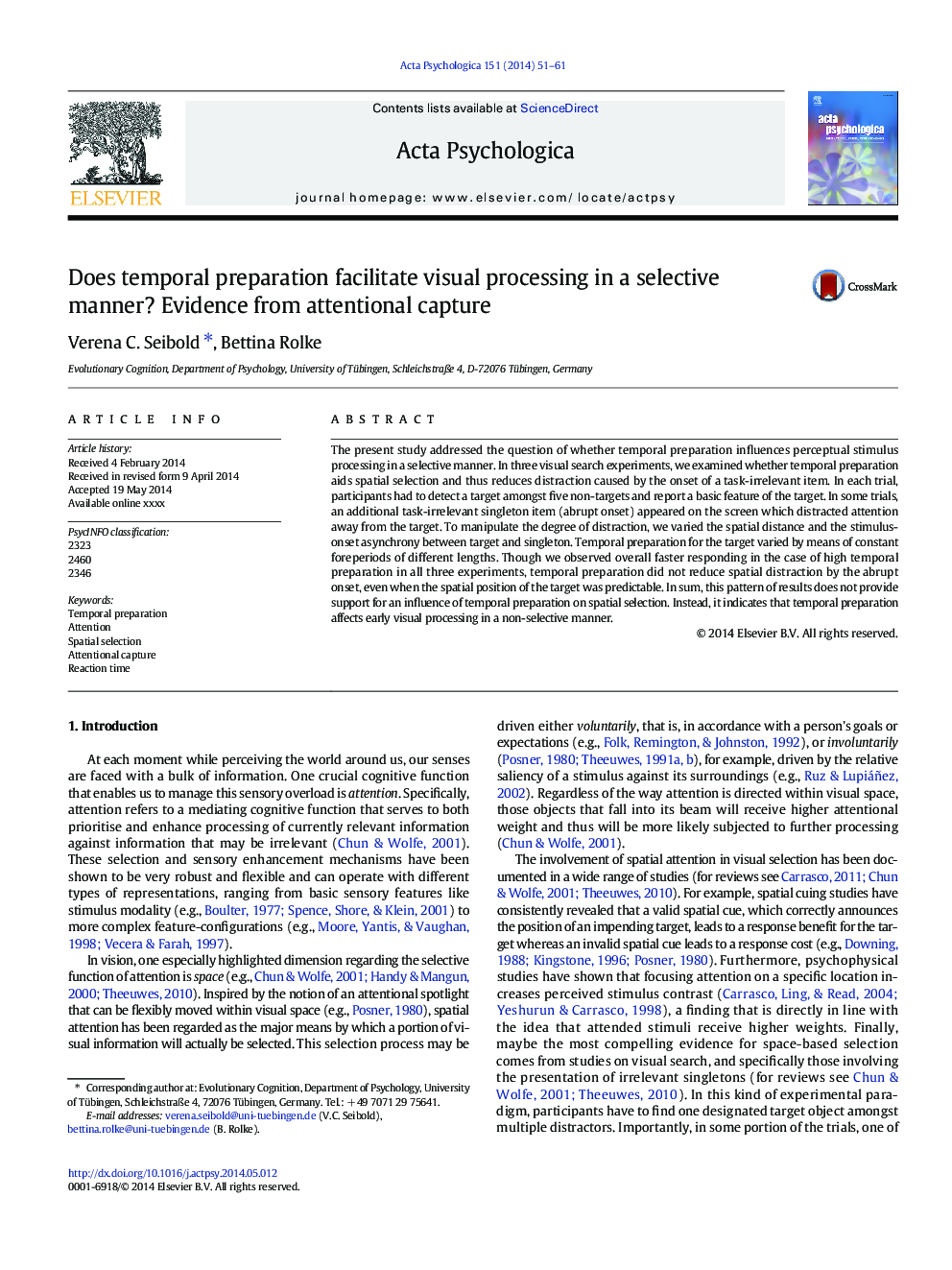| Article ID | Journal | Published Year | Pages | File Type |
|---|---|---|---|---|
| 7277539 | Acta Psychologica | 2014 | 11 Pages |
Abstract
The present study addressed the question of whether temporal preparation influences perceptual stimulus processing in a selective manner. In three visual search experiments, we examined whether temporal preparation aids spatial selection and thus reduces distraction caused by the onset of a task-irrelevant item. In each trial, participants had to detect a target amongst five non-targets and report a basic feature of the target. In some trials, an additional task-irrelevant singleton item (abrupt onset) appeared on the screen which distracted attention away from the target. To manipulate the degree of distraction, we varied the spatial distance and the stimulus-onset asynchrony between target and singleton. Temporal preparation for the target varied by means of constant foreperiods of different lengths. Though we observed overall faster responding in the case of high temporal preparation in all three experiments, temporal preparation did not reduce spatial distraction by the abrupt onset, even when the spatial position of the target was predictable. In sum, this pattern of results does not provide support for an influence of temporal preparation on spatial selection. Instead, it indicates that temporal preparation affects early visual processing in a non-selective manner.
Related Topics
Life Sciences
Neuroscience
Cognitive Neuroscience
Authors
Verena C. Seibold, Bettina Rolke,
